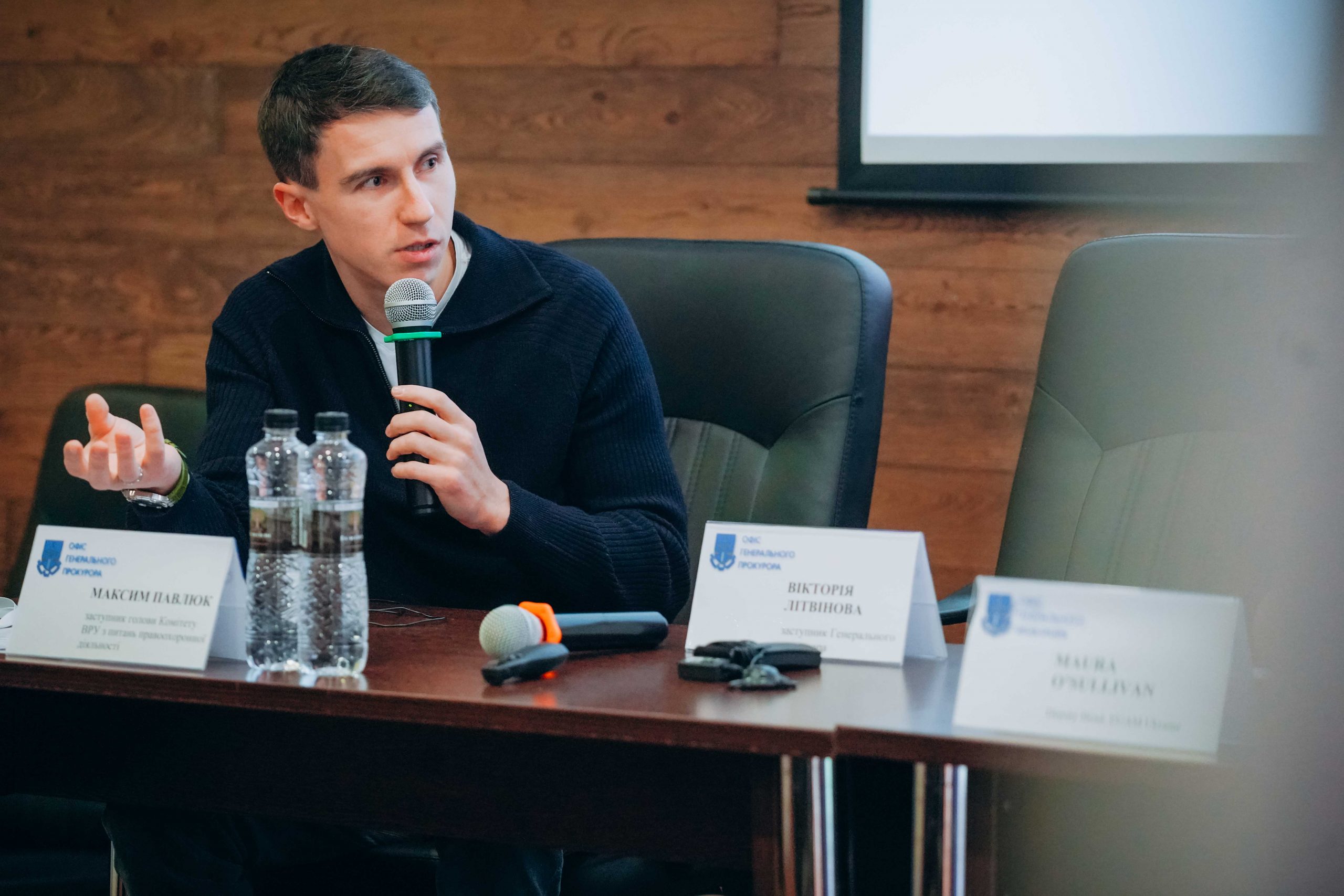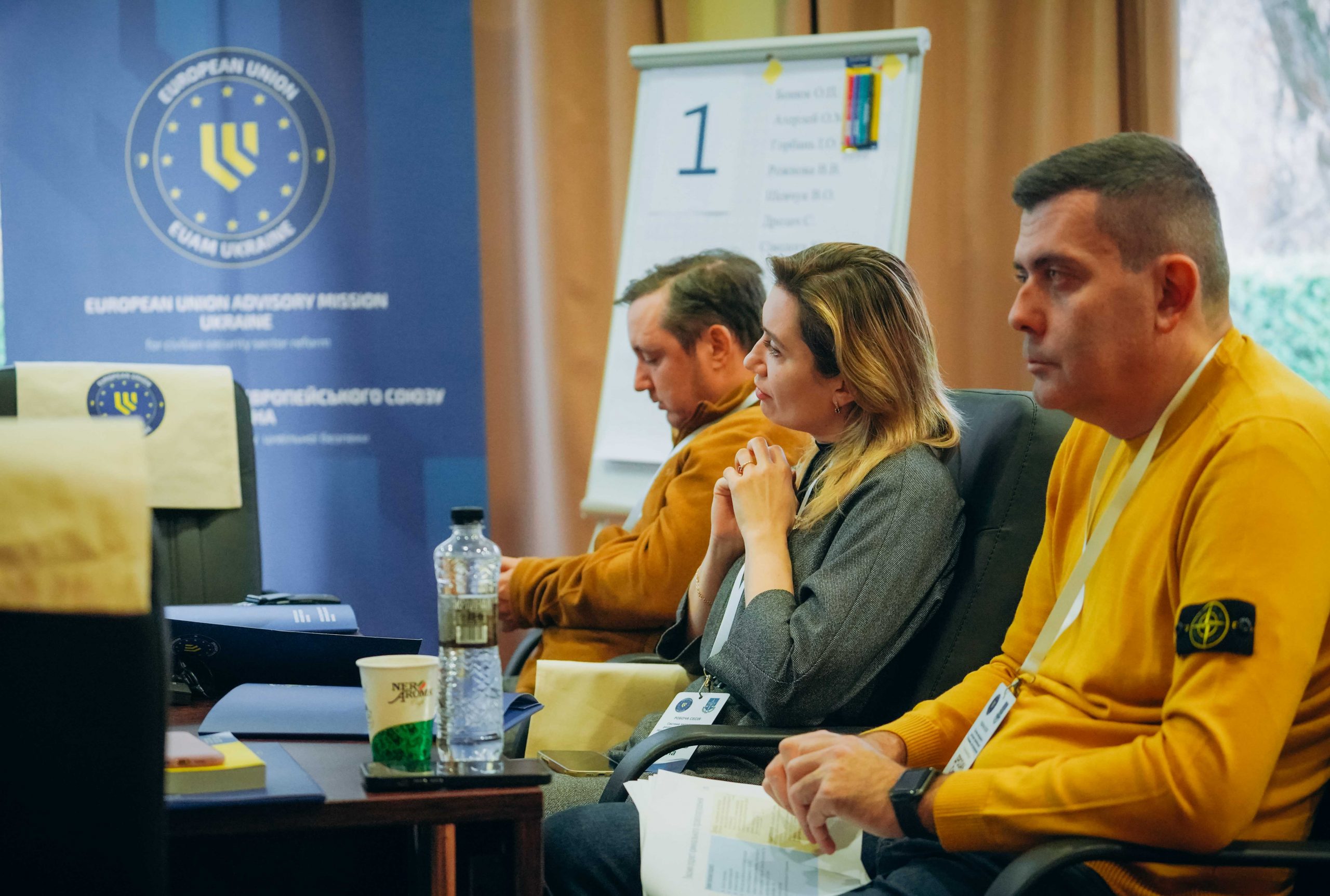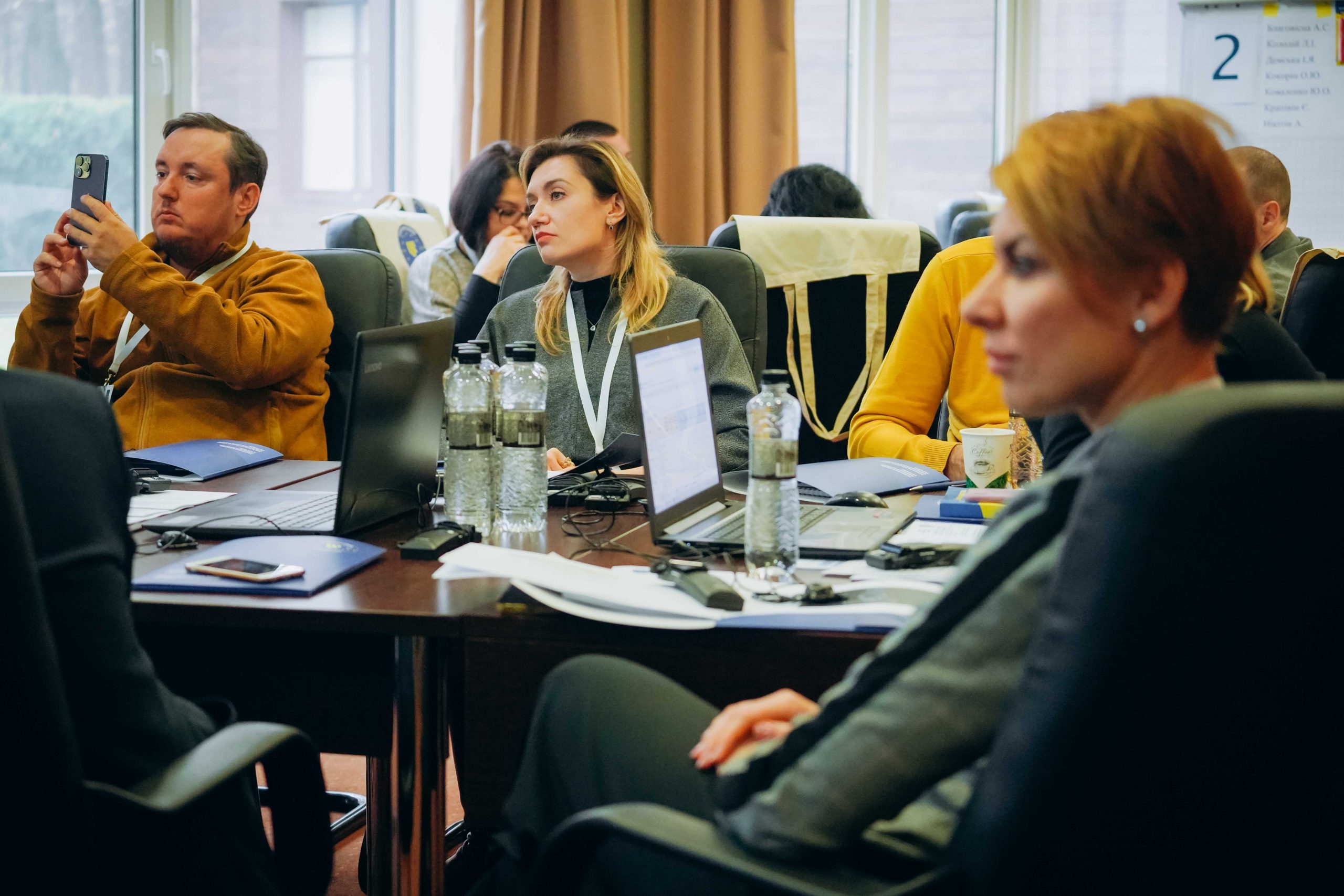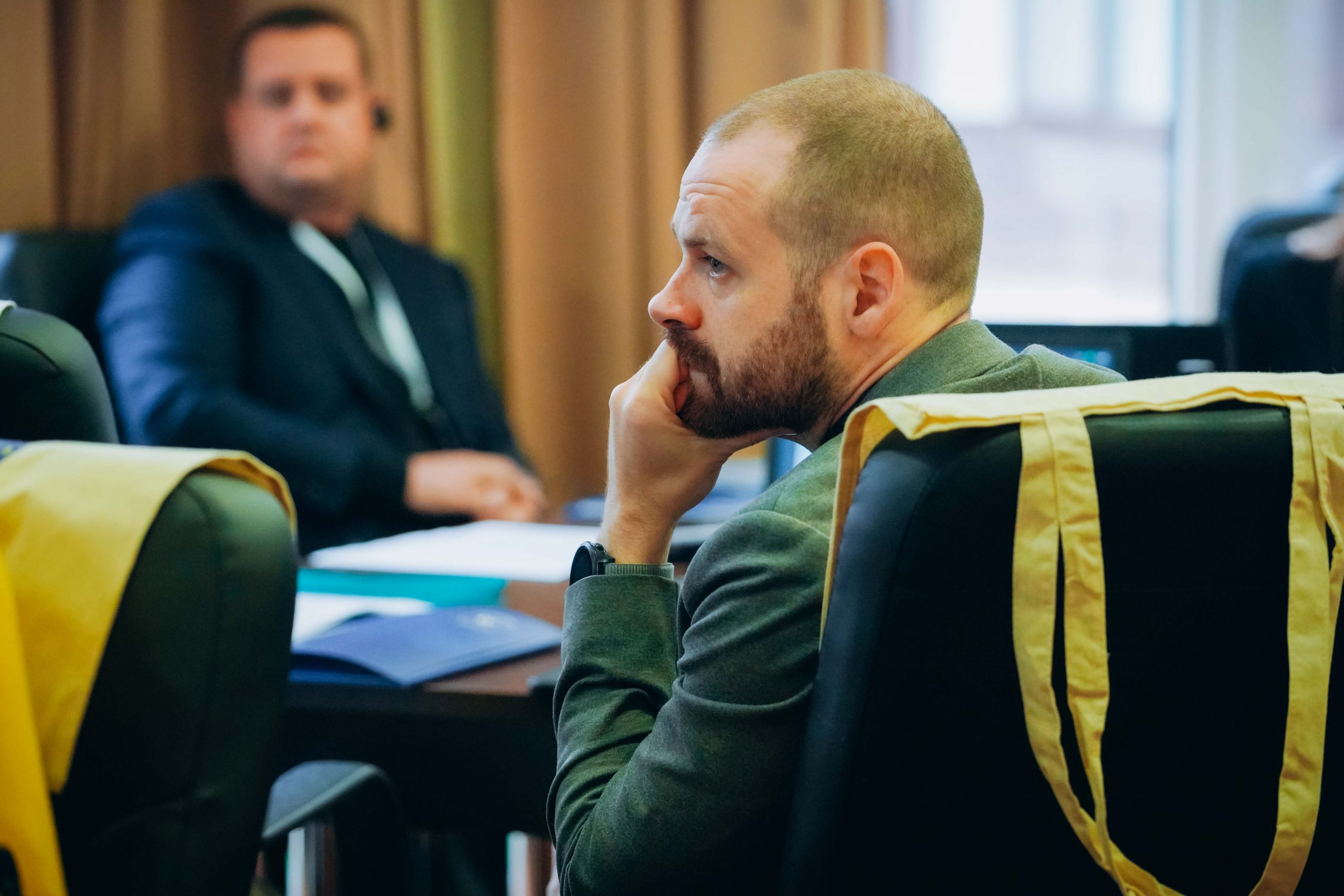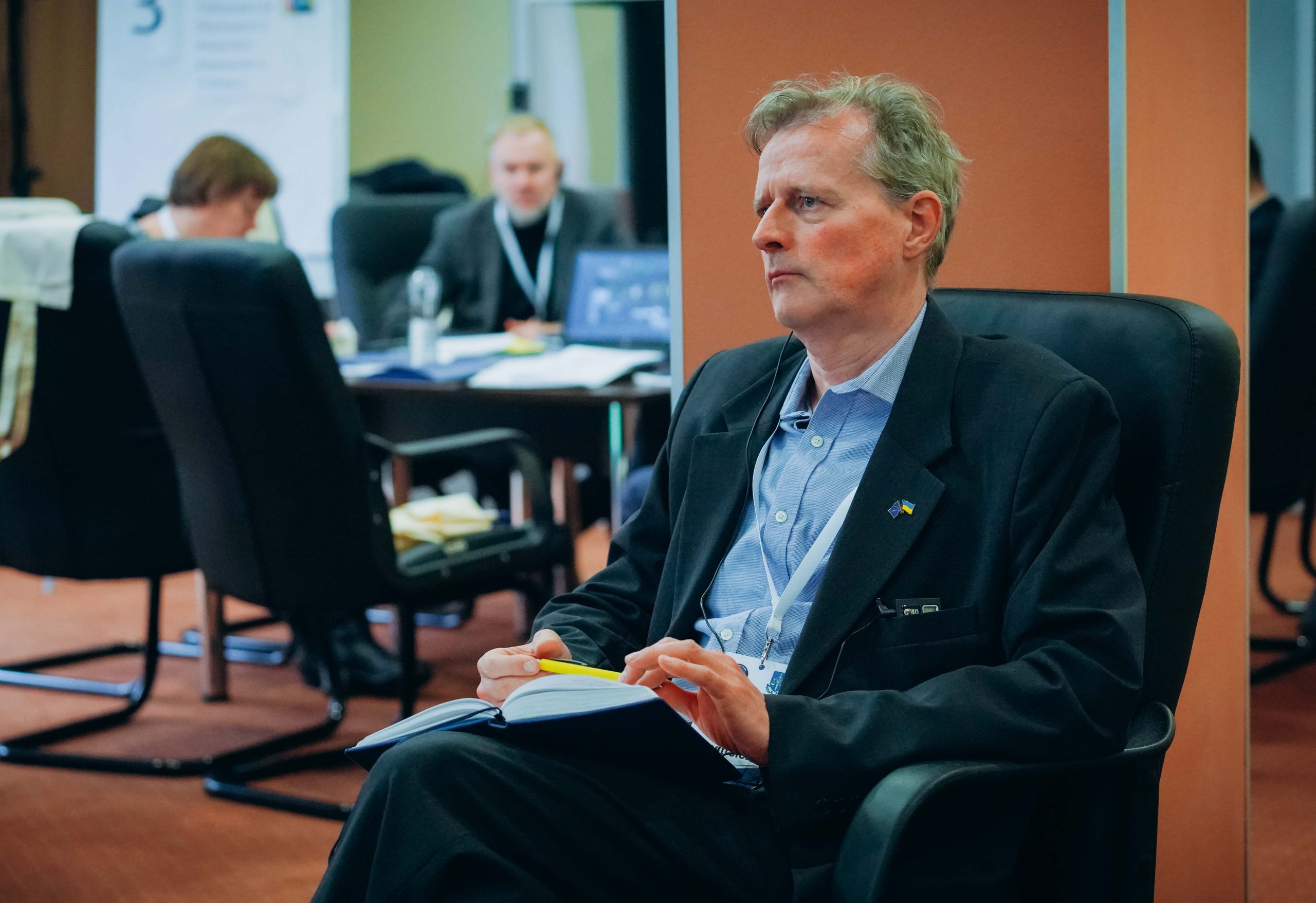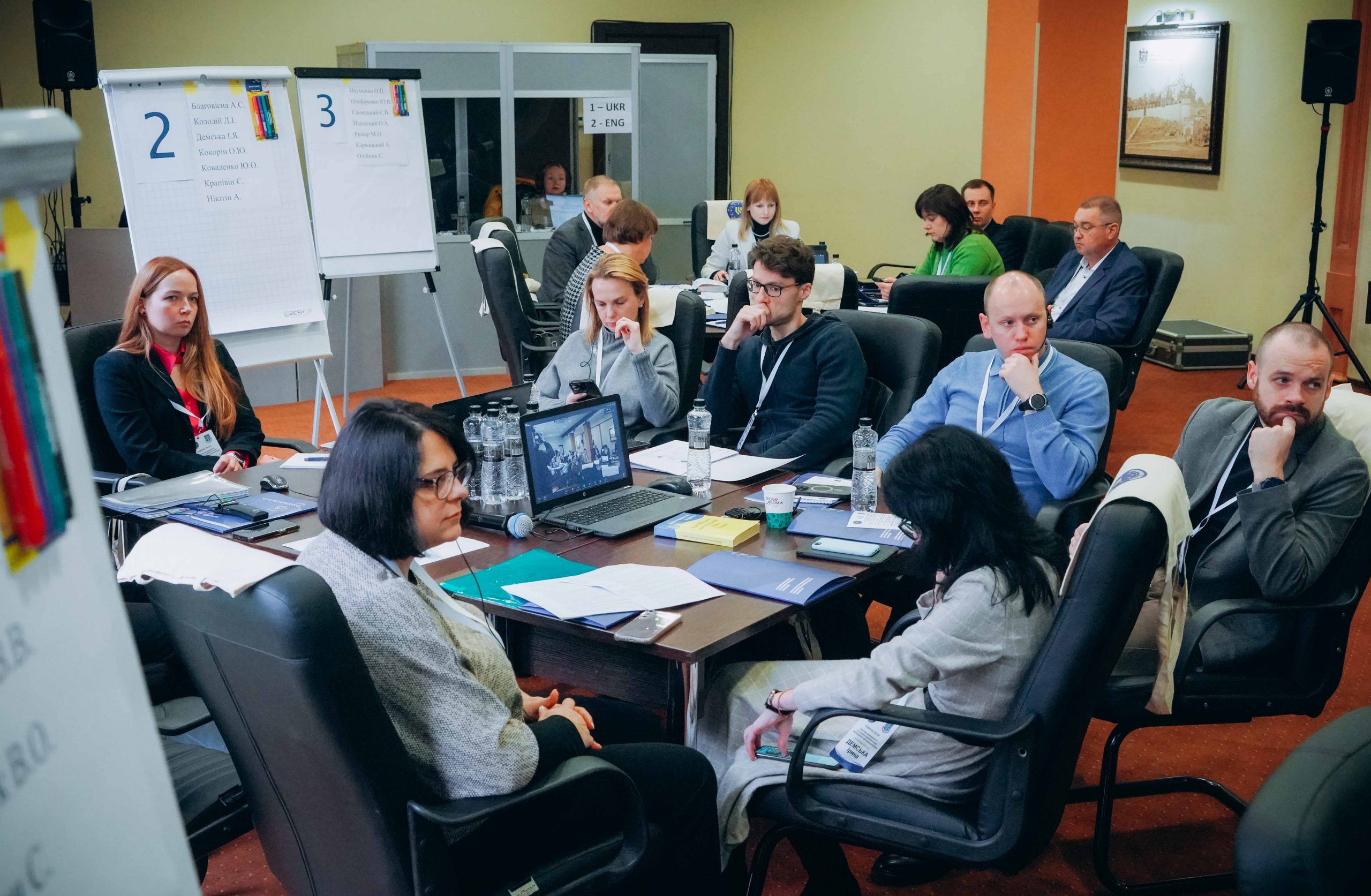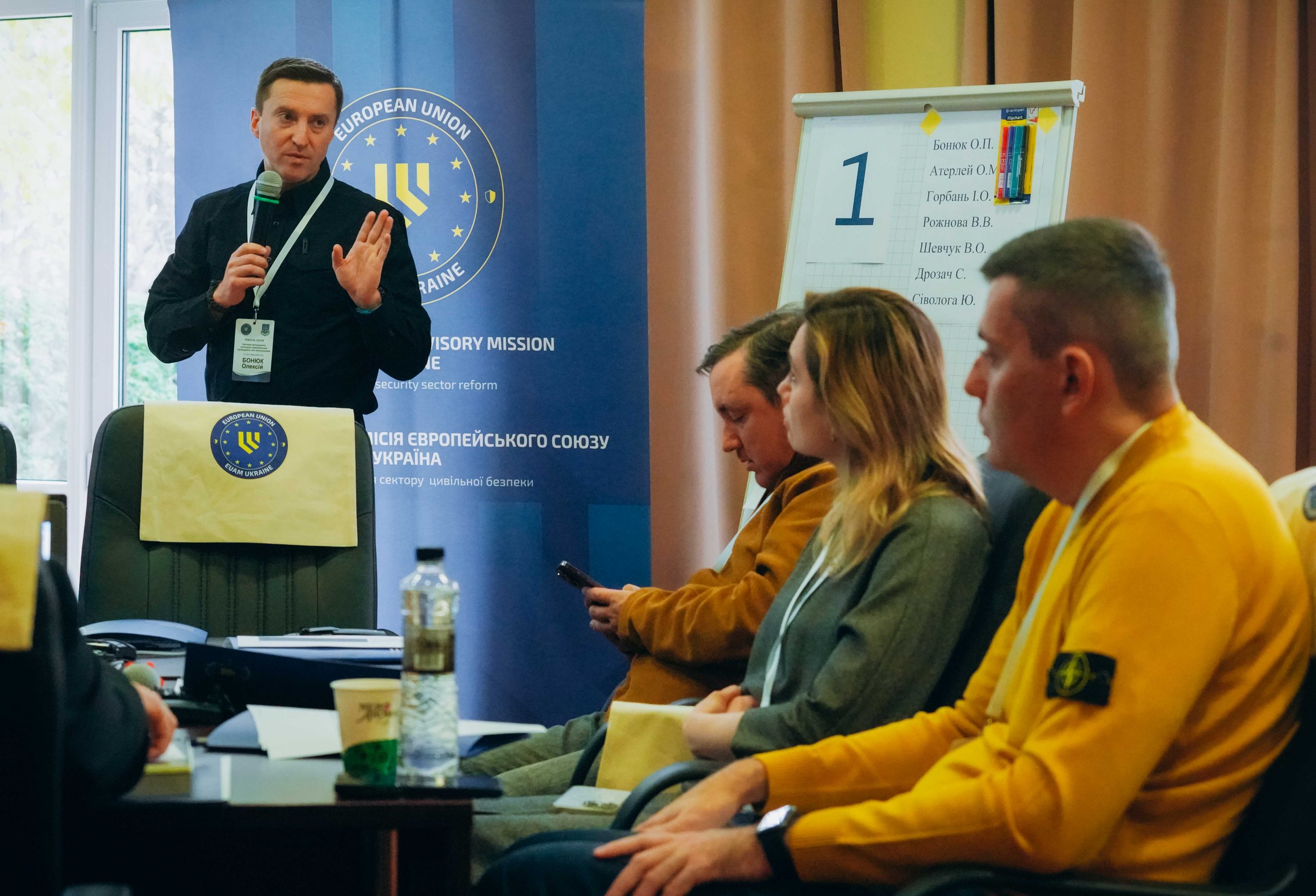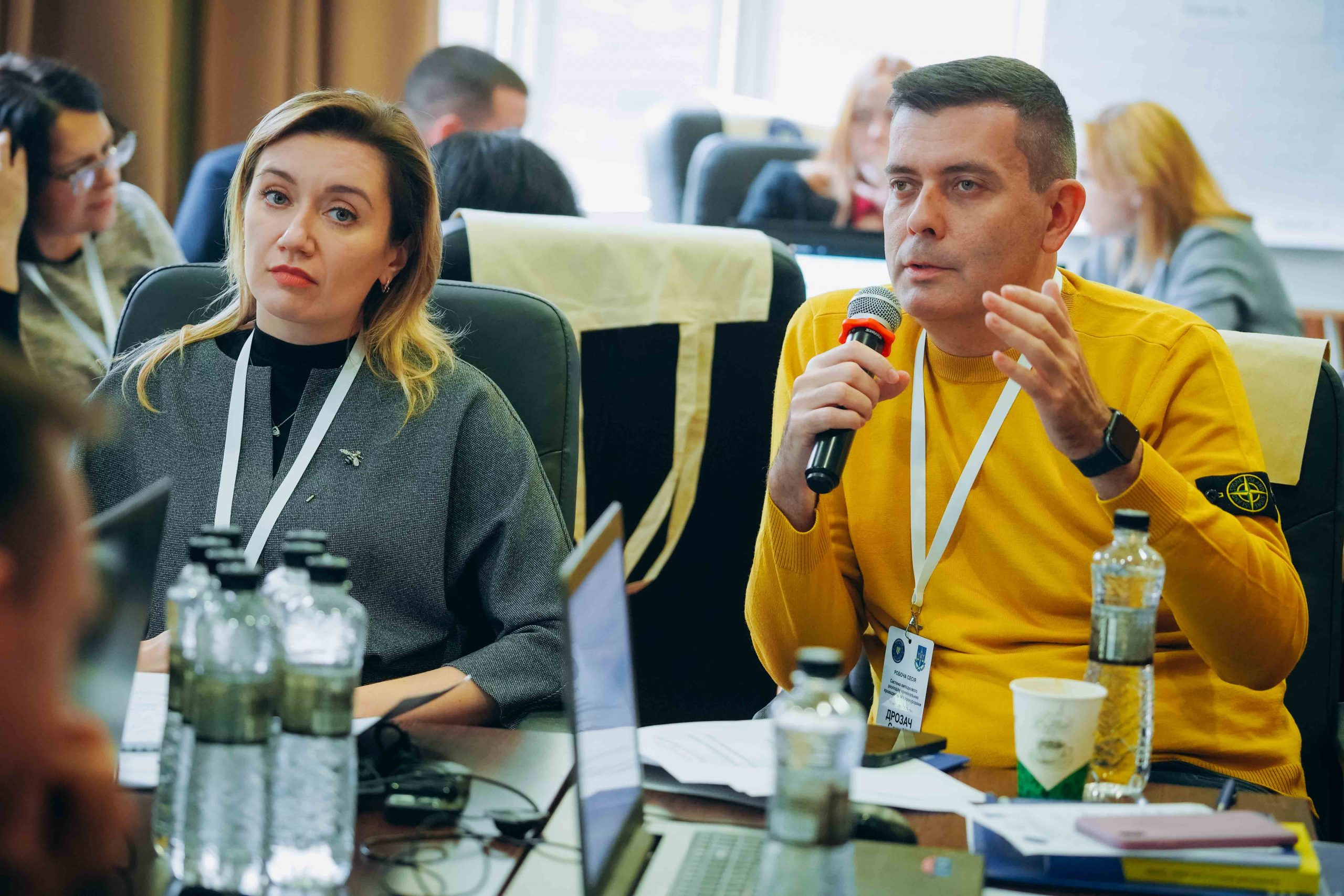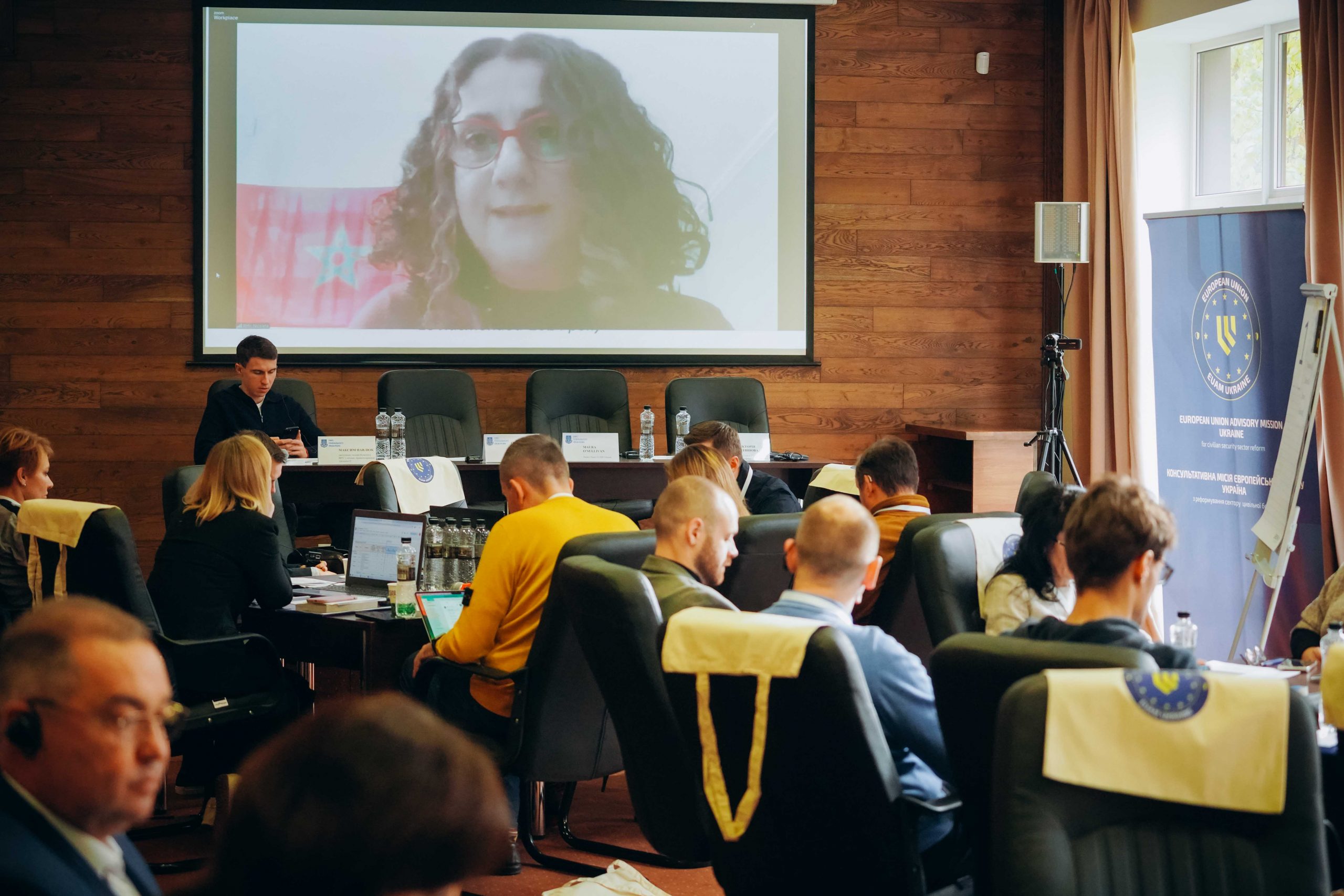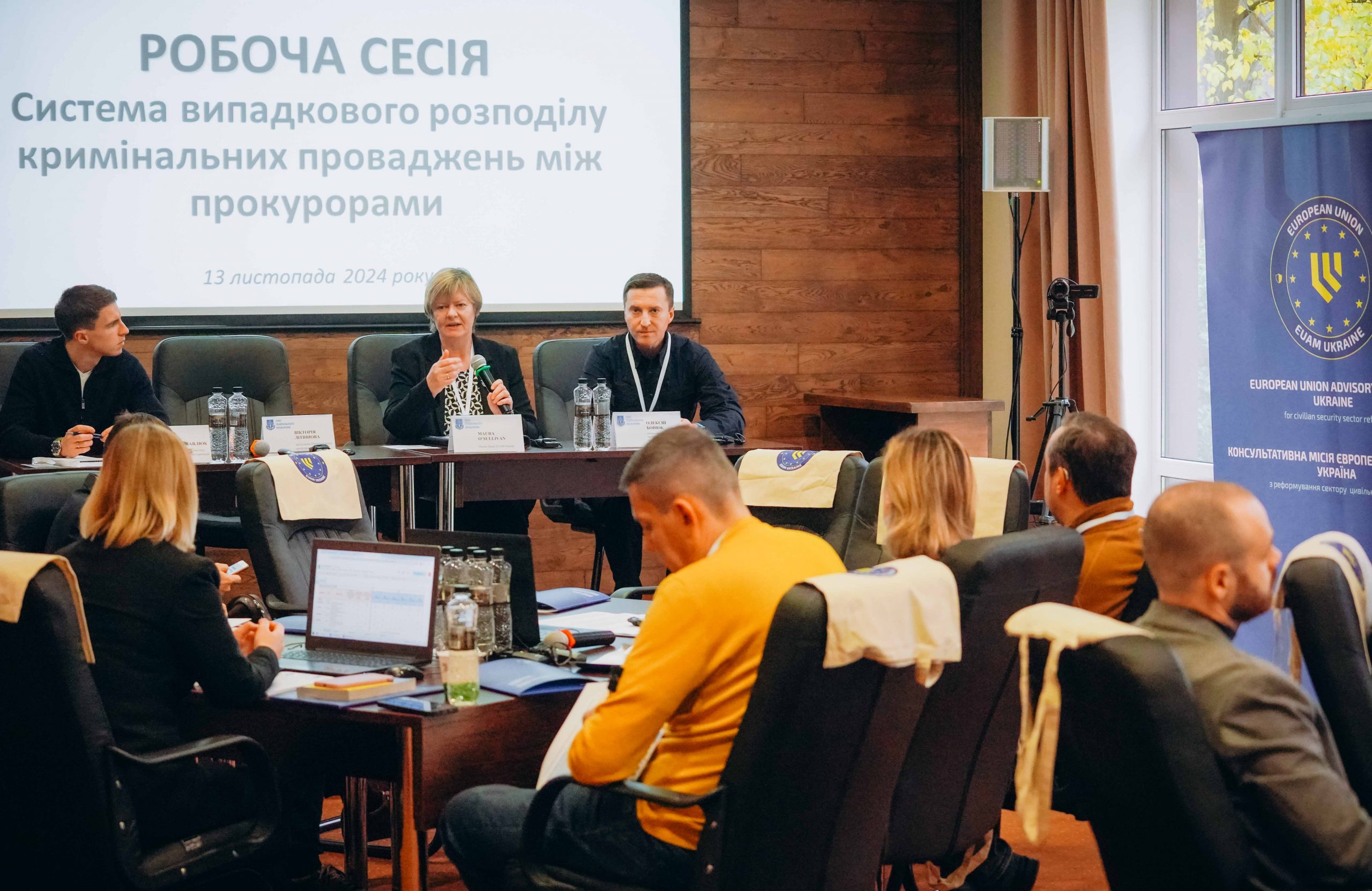Towards transparency: EUAM Ukraine supports OPG in implementing modern case allocation practices
November 19, 2024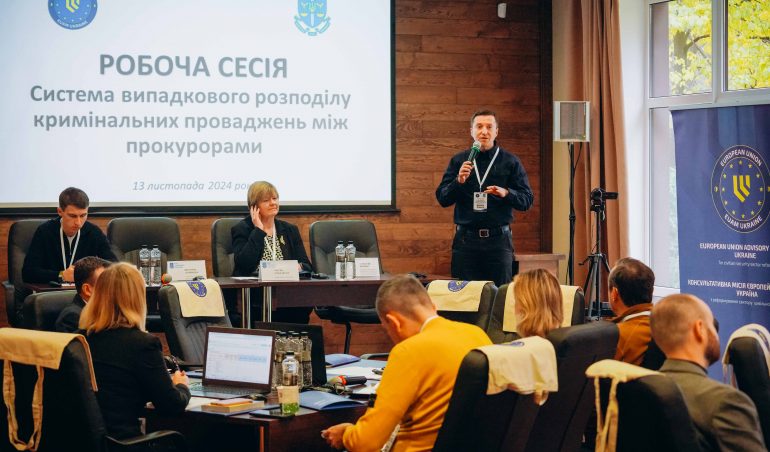
As part of ongoing efforts to modernise Ukraine’s prosecutorial system, a workshop on “Criminal Case Allocation at the Public Prosecutor Offices: GRECO recommendations and EU Member States’ experiences” took place in Kyiv on November 13, 2024. Organised by the European Union Advisory Mission (EUAM) Ukraine in cooperation with the Office of Prosecutor General in Ukraine, the event aimed to address a key reform: the introduction of a transparent and fair system for the allocation of criminal cases among prosecutors.
The workshop brought together prosecutors from across Ukraine, including representatives from the Office of the Prosecutor General (OPG), regional prosecutor offices and international partners. By learning European best practices and exploring custom-made solutions, participants laid the groundwork for reforms that will promote independence, impartiality and efficiency within the Ukrainian justice system.
A Path to Reform: Why case allocation matters
The random allocation of criminal cases to prosecutors may seem technical, but its implications are profound. It protects the criminal procedure from manipulation by ensuring that cases are distributed on the basis of objective, pre-established criteria. It also promotes a balanced workload and allows for specialisation in the handling of complex cases.
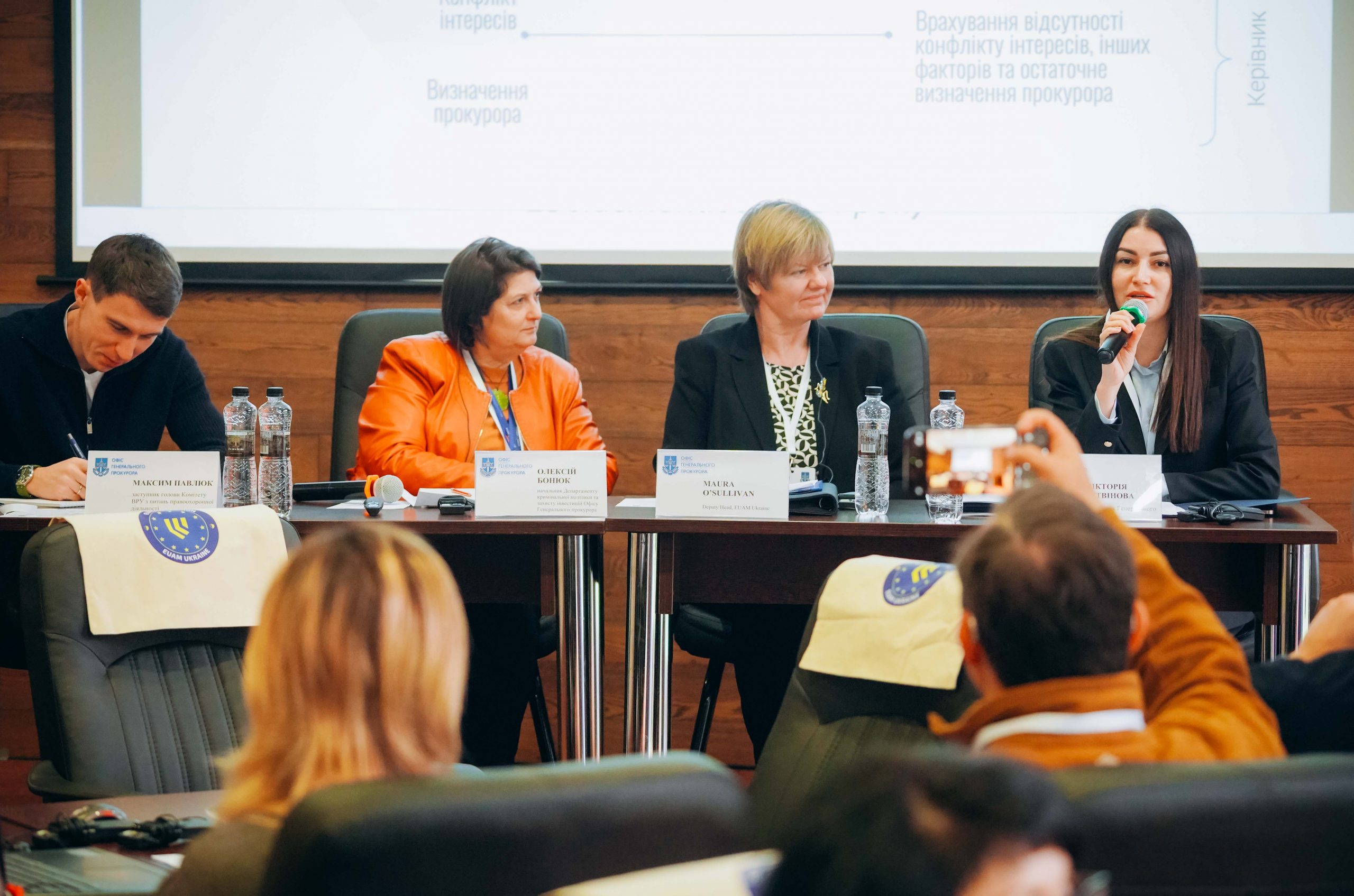
Deputy Prosecutor General Viktoria Litvinova stressed that “the purpose of the random case allocation system is to serve as a mechanism to ensure impartial and objective case distribution, fair workload among prosecutors, protect the system from abuse and manipulation, and strengthen the independence of the prosecution”.
This initiative is not just an administrative improvement – it reflects Ukraine’s commitment to building a justice system based on fairness, transparency and independence.
Learning from Experience and Practice
To ensure that the reform is both effective and sustainable, the workshop referred to the experiences of EU Member States. Two leading experts shared their expertise: Nicoleta Rhfir, a retired Romanian prosecutor and judicial inspector, and Elisabeth Trouvé, a Swedish prosecutor deployed to the EU Police Mission for the Palestinian Territories. They presented best practices, challenges and achievements in implementing randomised allocation systems in their respective countries.
Participants discussed algorithms for random case allocation and frameworks for profiling both cases and prosecutors to optimise allocations. These were not abstract conversations – they directly addressed the practical challenges Ukraine faces in bringing its prosecutorial practices in line with international standards.
One key feature of the workshop was its focus on practical group work, allowing participants to engage directly with the concepts introduced in the morning session. The groups addressed three key areas of reform: defining the requirements for a random case allocation system, designing an algorithm to manage case allocation, and profiling prosecutors to ensure effective allocation.
The three groups explored effective randomisation while allowing for specialisation in complex cases. They discussed safeguards to prevent manipulation and to ensure that workloads were fairly distributed among prosecutors. They also developed an algorithm for random case allocation, considering factors like case complexity and prosecutor expertise. They also outlined prosecutor characteristics and profiles, emphasising alignment with experience and career development while promoting efficiency and integrity.
These debates culminated in plenary sessions where each group presented its findings. The exchange of ideas fostered deeper understanding and actionable insights, equipping participants with tools to drive reform in their respective offices.
A joint effort for lasting impact
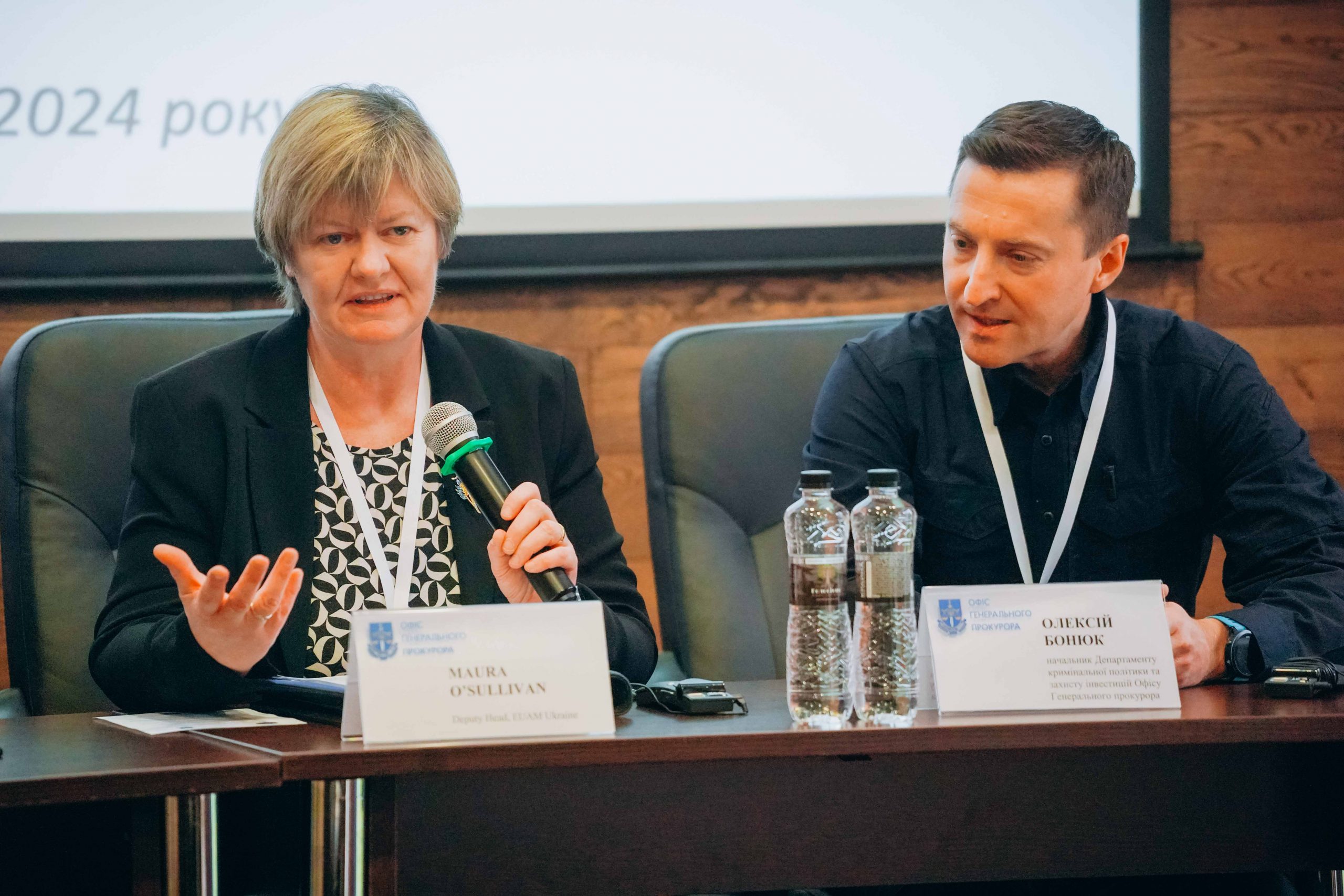
The workshop was part of EUAM Ukraine’s wider support to OPG in implementing results-oriented management practices. Reflecting on the importance of this partnership, EUAM Deputy Head of Mission Maura O’Sullivan noted:
“Our Mission has always believed in the power of shared expertise and practical solutions. This workshop is a cornerstone of our partnership with OPG. By working together to implement tools such as random case allocation, we are strengthening the independence and accountability of Ukraine’s prosecutorial system. These reforms will not only build public trust but also bring Ukraine’s justice sector in line with European standards.”
EUAM has been a committed partner of the OPG, supporting its reform agenda through training, capacity building and expert advice. The introduction of a random case allocation system is a notable achievement in this partnership, ensuring that Ukraine’s prosecution system is both transparent and resilient to undue influence.
As the workshop concluded, participants left with actionable insights and practical tools to begin implementing reforms. By addressing key issues such as case complexity, workload balancing and prosecutorial specialisation, Ukraine is taking a significant step forward on its path towards European integration.
This workshop also demonstrated the power of cooperation between Ukrainian and international stakeholders. As noted by Deputy Prosecutor General Litvinova, the changes discussed are crucial not only for the advancement of reforms but also for the assurance of justice and public confidence in the legal institutions of Ukraine. EUAM remains committed to supporting these efforts as Ukraine moves closer to its European future.



